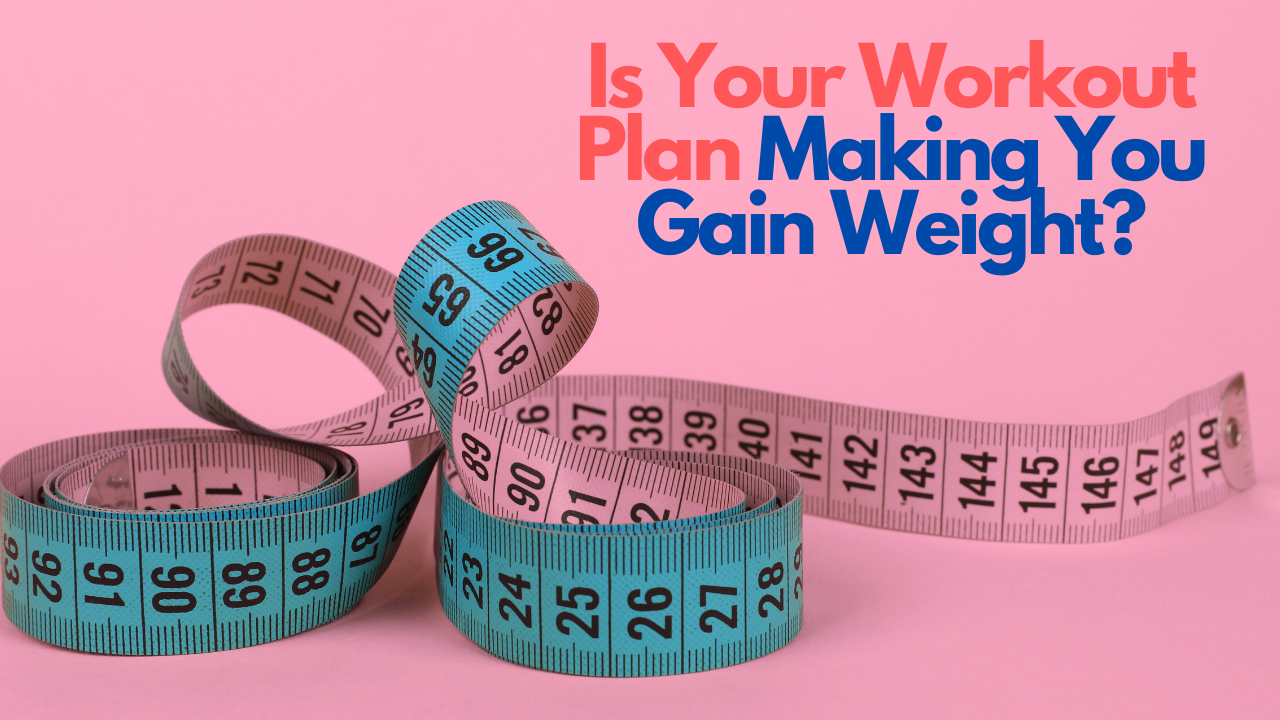Is Your Workout Plan Making You Gain Weight?
Sep 03, 2025
Is Your Workout Plan Making You Gain Weight?
You lace up your sneakers, commit to regular workouts, and expect the scale to reward your hard work. But what happens when the number goes up instead of down? It’s frustrating and confusing.
The truth is, weight gain while exercising doesn’t always mean failure. In fact, in many cases, it’s a natural (and even healthy) part of the process. Let’s break down the science behind why your workout plan might be making you gain weight and what you can do about it.
- Muscle vs. Fat: Understanding the Scale
One of the most common reasons for weight gain after starting an exercise routine is increased muscle mass.
Muscle is denser than fat, which means it takes up less space but weighs more per volume. So, while your body composition may be improving (less fat, more muscle), the scale may not immediately reflect that.
Science check: Studies show that resistance training can increase lean muscle mass even as overall fat decreases, leading to better strength, metabolism, and long-term health outcomes — even if your weight stays the same or goes up slightly.
The takeaway: Don’t rely solely on the scale. Pay attention to how your clothes fit, your energy levels, and how strong you feel.
- Water Retention From Muscle Repair
When you exercise, especially if you’re new to strength training or pushing harder than usual, tiny tears form in your muscle fibers. This is normal it’s how muscles grow stronger.
But here’s the catch: as your body repairs these muscles, it temporarily retains water to help with inflammation and healing. That extra water can add 2–5 pounds to the scale in the short term.
Science check: Research on exercise-induced muscle damage shows that water retention can peak a few days after intense workouts, especially strength training, before balancing out again.
The takeaway: Temporary water weight isn’t fat gain. It’s your body healing and adapting to new demands.
- Increased Appetite and “Compensatory Eating”
Exercise can stimulate appetite, especially cardio-heavy workouts. Sometimes, people end up eating more calories than they burn — often without realizing it.
For example, a 45-minute run might burn around 400 calories, but one post-workout smoothie or “reward” snack can easily replace that (and then some).
Science check: A review in Obesity Reviews found that many individuals unconsciously increase their calorie intake after exercise, offsetting the calorie deficit they expect to create.
The takeaway: Pay attention to hunger cues and portion sizes. Fuel your body, but don’t use exercise as an excuse to overeat.
- Stress, Cortisol, and Overtraining
More isn’t always better. Overtraining or doing excessive high-intensity workouts can actually raise cortisol, your body’s main stress hormone.
Chronically elevated cortisol can contribute to increased fat storage, particularly around the midsection. Combine that with fatigue and poor recovery, and your workouts may be working against you.
Science check: Studies link high cortisol levels to increased abdominal fat, disrupted sleep, and slower recovery, all of which can stall weight loss.
The takeaway: Balance high-intensity exercise with lower-intensity activities like yoga, walking, or stretching to keep cortisol in check.
- Fueling Choices and Hidden Calories
Another sneaky culprit? “Health” foods marketed to exercisers. Sports drinks, protein bars, or smoothies often contain more sugar and calories than you think.
Science check: Research shows that sports drinks are often unnecessary for moderate exercise under an hour, and relying on them can add hundreds of extra calories per week.
The takeaway: Whole foods like lean protein, fruit, and veggies usually provide better post-workout fuel than processed options.
The Bottom Line
If the scale creeps up after starting a new workout routine, don’t panic. Weight gain doesn’t always equal fat gain. It may reflect muscle growth, water retention, or subtle shifts in eating habits.
The key is balance, pair exercise with mindful nutrition, adequate recovery, and realistic expectations. Over time, your body will adapt, and the benefits (strength, energy, confidence, health) will outweigh the numbers on the scale.
So, instead of asking “Why am I gaining weight if I’m working out?”, a better question might be: “How is my body changing beyond the scale?”
Stay connected with news and updates.
Join our mailing list to receive the latest news and updates from our team.
Don't worry, your information will not be shared.
We hate SPAM. We will never sell your information, for any reason.



